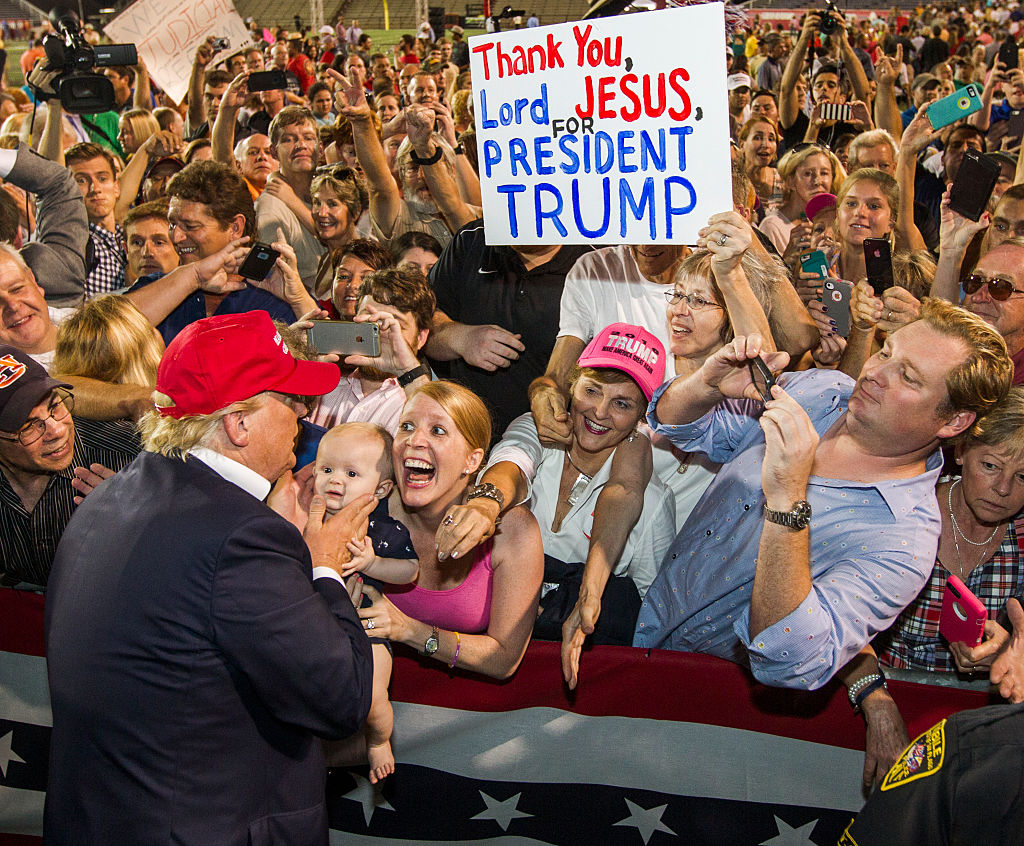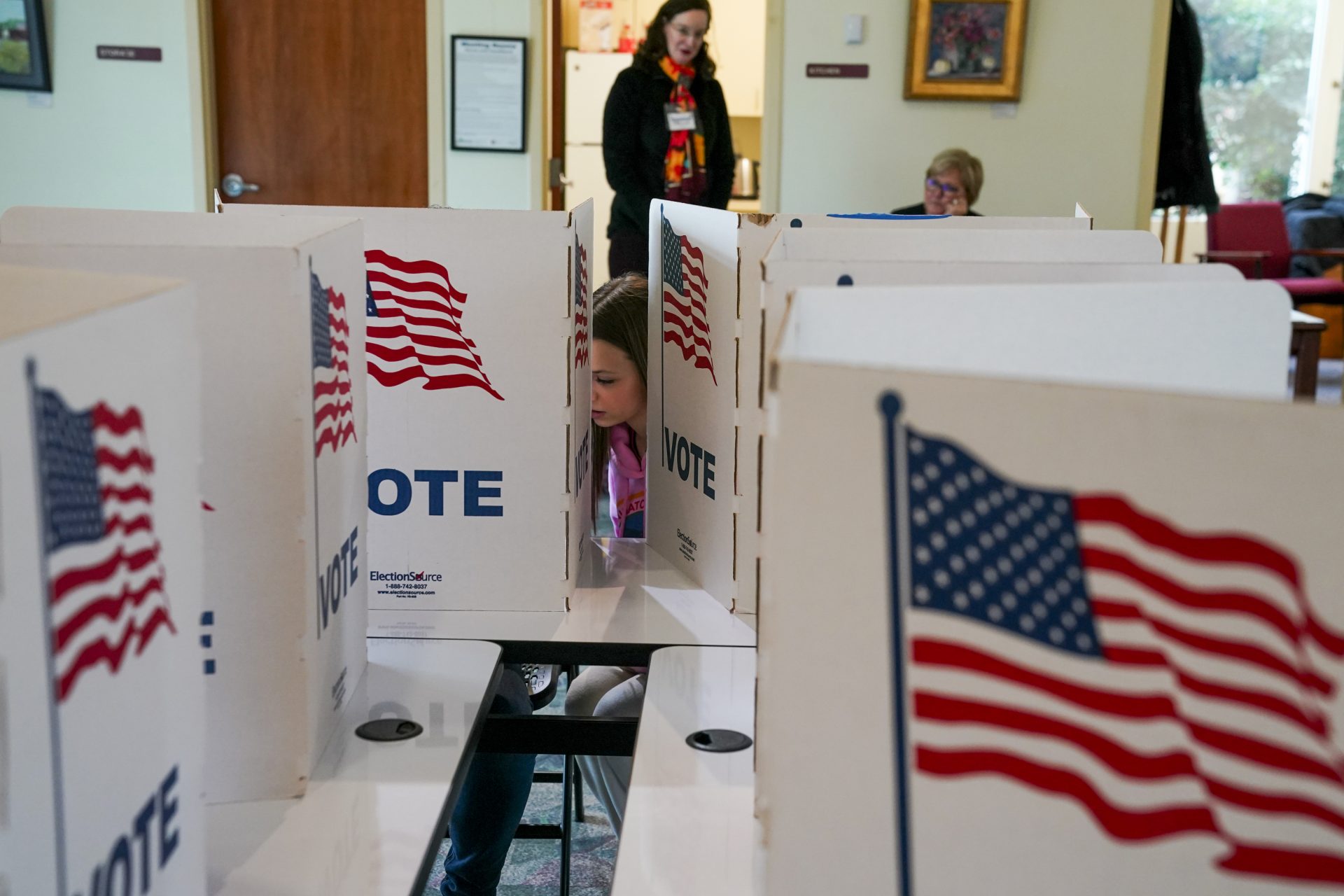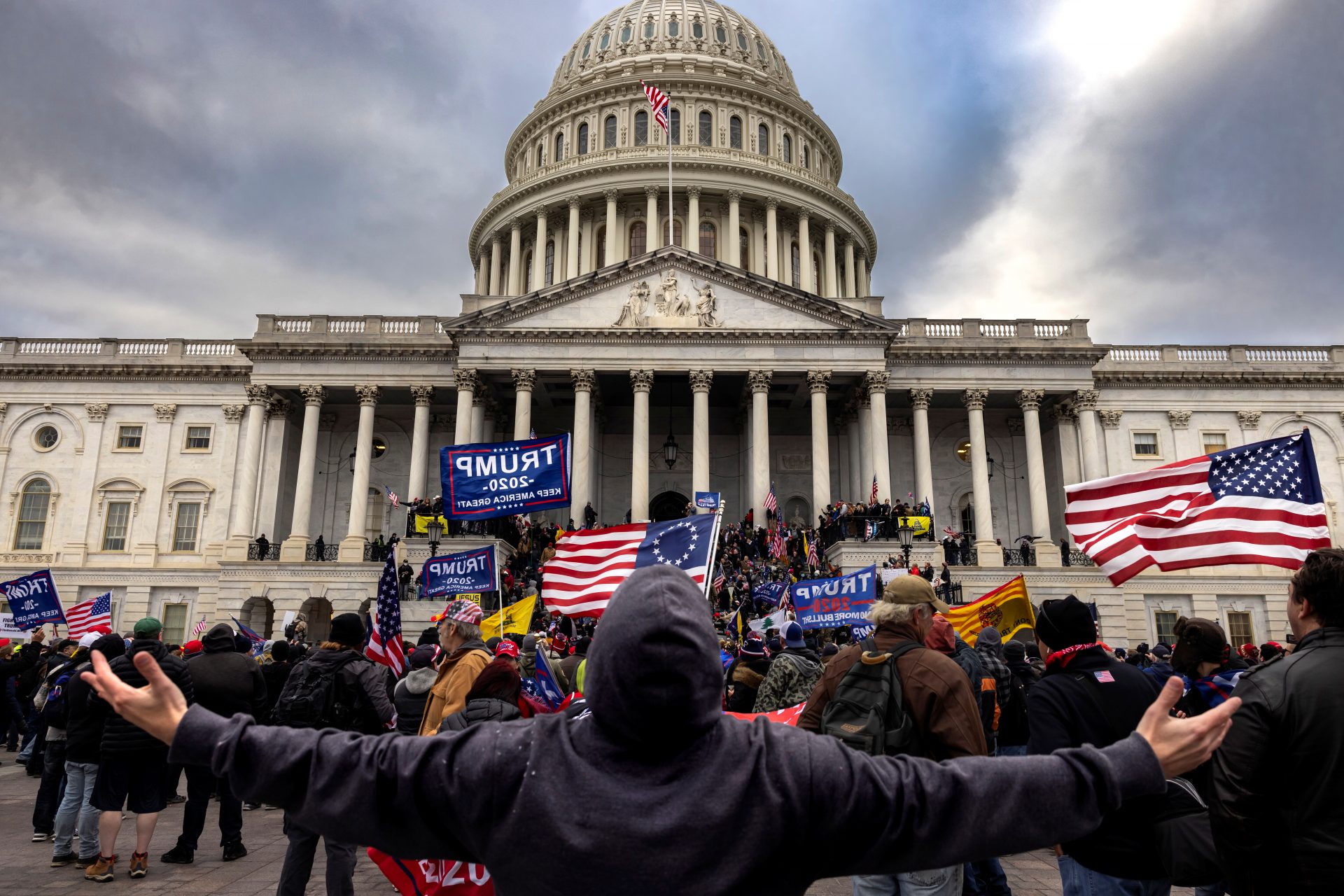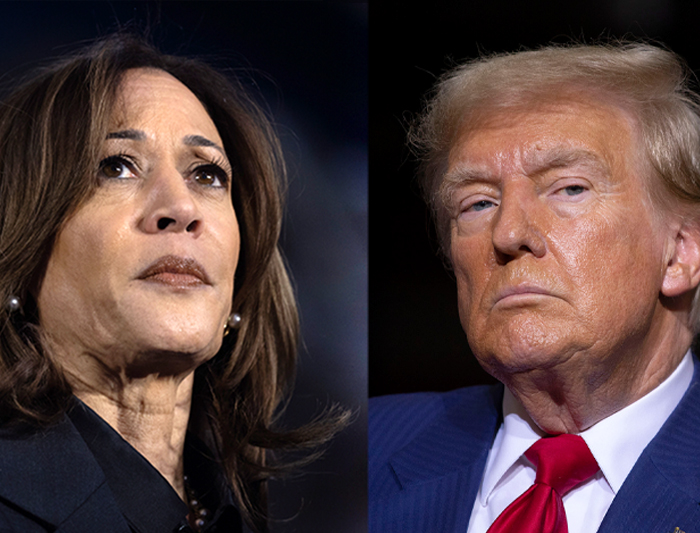America Divided: What caused political division in the U.S. after 2020?
Long before Donald Trump was elected back into the White House by U.S. voters, Americans were hinting that they were dissatisfied with the state of their democracy and it affected some more than others.
The deep political divide in the United States only seemed to grow in the years after the 2020 election, and a group of enterprising researchers tried to sort out what was causing the problem. They detailed their findings in a July 2024 study and actually revealed some interesting insights.
Published in the journal PS: Political Science & Politics, the new study indicated that the aftermath of the 2020 elections in the U.S. revealed a large partisan divide in satisfaction with democracy in the United States.
However, there was a clear trend showing Republican satisfaction with democracy after the election declined while satisfaction increased among Democrats according to the researcher's work. There were several reasons for these significant partisan inclines and declines.
Economic concerns and emotional reactions are the first two factors that you might think played a role in satisfaction levels, and they did according to PsyPost. But they weren't the only factors. Plus they were also found to only have had a small influence on satisfaction with democracy.
The researchers explained in their study that elections like the U.S. 2020 case were not a simple economic referendum or rousing ‘horse race’ but rather polarizing for voters on a much more foundational level that affects society. This societal polarization was further explained in the study.
Institutional confidence, and particularly confidence in the electoral process, was the big factor that dictated satisfaction levels. The study’s authors theorized that they would find a gap in satisfaction, but their discovery was groundbreaking.
For example, Republicans were on the losing end of the 2020 election and they showed significant declines in confidence in the electoral system, including doubts regarding the fairness and freeness of the election according to PsyPost.
“We were surprised that affective polarization did not play a greater role in accounting for changes in either dissatisfaction with democracy or with the way the 2020 election was conducted,” study co-author Samual Whitt told PsyPost.
Whitt also added the research team was surprised they didn’t find more evidence in the way of economic predictors of discontent, adding that satisfaction with democracy was tied to perceptions and confidence in electoral institutions.
Whitt added that the study’s findings suggested “potentially more fundamental problems with American democracy that may be more difficult than dissatisfaction tied to short-term fluctuations in the economy, or the stirring of passions during a heated electoral cycle.”
Republican satisfaction with democracy decreased from 66.0% to 56.7.3% following the 2020 election while Democrat satisfaction levels rose from 55% to 66.8%. Interestingly, Independents saw little change in their satisfaction levels.
How the media covered the 2020 elections also emerged as a key factor in satisfaction levels and the researchers found that individuals who felt the media accurately reported on the elections had higher satisfaction levels regardless of party affiliation.
Knowing how the media can affect satisfaction levels was an important finding because it can be used as a solution to improve confidence in electoral institutions and improve voter satisfaction levels with democracy according to the study’s authors.
“Our work underscores how perceptions of the electoral process influence citizens’ appraisals of democracy in the aftermath of contentious elections,” Whitt explained. “Winners tend to become more satisfied with democracy, and losers more dissatisfied.”
“But in the 2020 election, rising dissatisfaction with democracy among Republicans was clearly linked to their dissatisfaction with the electoral process, which they did not perceive as free or fair,” Whitt continued.
“If an electoral loss triggers not only discontent about the outcome, but the process as well, this raises concerns about democratic stability in the United States,” Whitt added, which is an issue that could someday break the nation.
How Kamala Harris' 2024 Election loss will affect Democrats has yet to be seen, but it would be interesting for the research team of the 2020 study to go back and see if Trump's victory affected Democrat sentiments about their democracy in the same way Republicans were affected in 2020.
More for you
Top Stories































